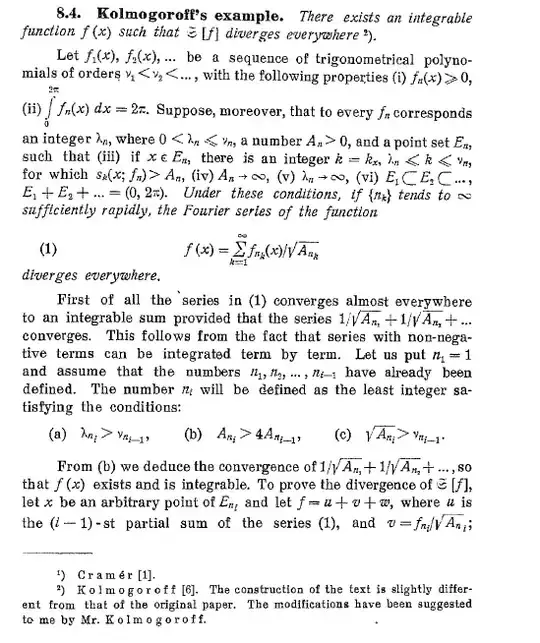I've been reading Widder's Advanced Calculus text, which says that there are some continuous functions that have divergent Fourier series, which are summable to the function (C, 1).
I'd greatly appreciate it if someone could present an explicit example of such a function, I haven't been able to find one anywhere.
(When Widder mentions divergence of the Fourier series of a continuous function, is it actually possible for it to diverge everywhere, or can it only diverge "almost everywhere?")
Edit: I found something in Zygmund's book, but it's somewhat unclear. Clarification would be helpful, thank you!
